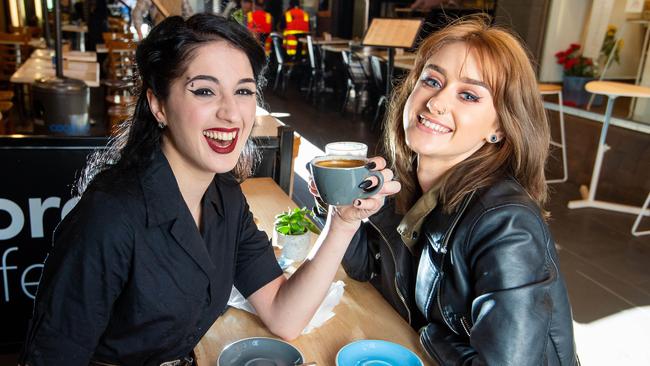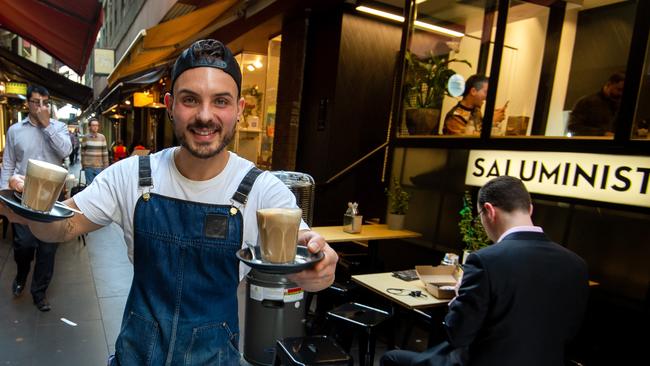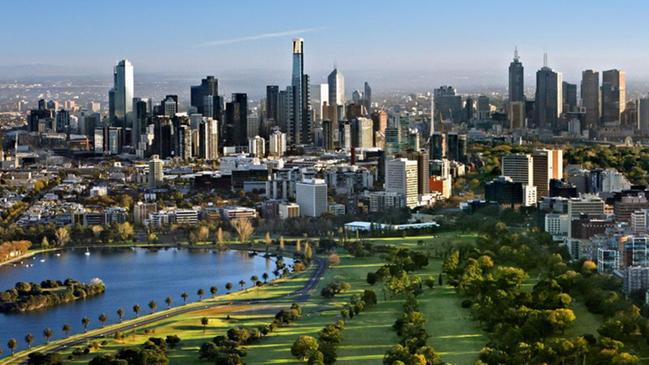Cafe culture drives Melbourne economy to $95b record
CENTRAL Melbourne’s dining culture continues to fuel the city’s economy, with a record number of cafes and restaurants now feeding workers, residents and tourists.
VIC News
Don't miss out on the headlines from VIC News. Followed categories will be added to My News.
CENTRAL Melbourne’s dining culture continues to fuel the city’s economy, with a record number of 2360 cafes and restaurants now feeding workers, residents and tourists.
Data from the city council shows 200,000 seats for dining are now available, which means if every cafe and restaurant operated 2½ sittings, every city worker could enjoy a sit-down lunch.
COFFEE DRINKERS URGED TO GO GREEN
COFFEE LEGEND EARNS RECOMMENDATION
The boom has led to 12,800 hospitality jobs being created in the city in the past 10 years.
Overall the city annual economy’s has soared to $94.96 billion — up 3 per cent in a year — with more than 78,000 jobs created during the past 10 years.
The data comes from the City of Melbourne’s 2017 Census of Land Use and Employment, with most of the growth concentrated in the CBD and Docklands.

The explosion in office space at Docklands, especially near Southern Cross station, has produced 37,400 new jobs in the waterside suburb since 2007.
Lord Mayor Sally Capp described Melbourne’s growth as the envy of the nation.
“Our city boasts 461,000 jobs across 16,700 business establishments, with ABS data showing we’ve grown 13 per cent faster than the rest of Victoria,” she said.
“More than 15,000 new dwellings have been added to the CBD in the last 10 years — that’s around the same size as the town of Warrnambool.”
Council officers have collected the CLUE data by interviewing every business across the municipality since the 1960s.

Traditional industries continue to underpin the city boom.
“Business services” is the biggest employer with 81,700 workers, followed by finance and insurance (61,000).
Among the hundreds of new entrants to Melbourne’s dining scene has been Saluministi.
Frank Bressi and business partner Peter Mastro graduated from a pop-up in North Melbourne to opening in Docklands within two years and then expanding with cafes in The Causeway and Flinders La.

“Two-and-a-half years ago, Docklands was a bit of a ghost town, but it’s improving,’’ Mr Bressi said.
“And since last Christmas we’ve noticed the area feels like it’s getting more of a community.’’
The Docklands eatery, next to the new library at the western end of Bourke St, has become a warehouse and base for the CBD satellite cafes.
More than 58,000 people now work in Docklands.



